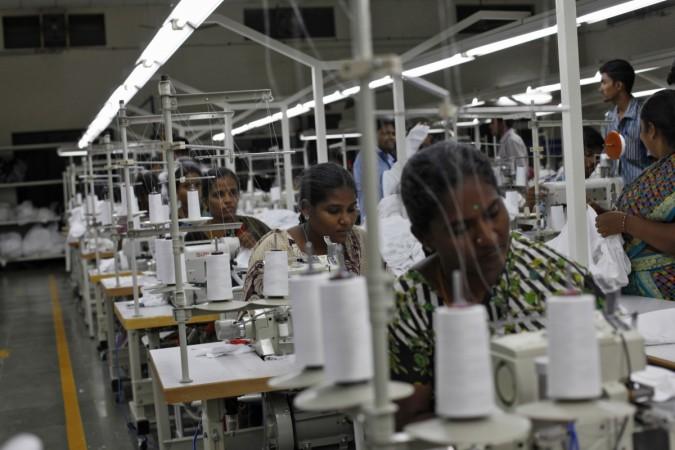
Cotton production will determine whether the Narendra Modi government will succeed in achieving its target of increasing textile exports from India by $30 billion over the next three years. The country exported textiles worth $40 billion in 2015-16, of which cotton-based textile goods accounted for $36.2 billion, or about 90 percent.
Two consecutive years of drought in India have impacted cotton production and the current crop season ending this September (2015-16) is expected to yield 10 percent lower at 34.1 million bales (a bale is 170 kg) when compared with 38.3 million bales last year, the Business Standard had reported early this month, referring to estimates by the Cotton Association of India.
High cotton prices and cheaper imports from China hit production of cotton-based goods, according to Ashok G Rajani, the chief of the Apparel Export Promotion Council (AEPC). Consequently, export of cotton-based textile goods also got impacted.
In the textile policy announced on Wednesday, the Modi government rolled out a slew of incentives and claimed that these will lead to a $30 billion-increase in exports over three years, besides attracting investments of about Rs. 74,000 crore.
India's overall textile exports had remained almost flat at $40 billion in 2015-16 from $41.6 billion in the previous financial year, a result of sluggish economic conditions globally. It also fell short of the year's target of $47.5 billion set by the government.
"Despite poor market conditions, the textile industry did well as compared to other sectors on export front. Our textile exports remained at $40 billion in 2015-16," Union Textiles Minister Santosh Kumar Gangwar said in April, according to PTI.
The Rs. 6,000-crore package includes refund of Rs. 5,500 crore that are levied by the states, payment of employer's share of 12 percent provident fund contribution for new employees for the first three years, provided their salary is less than Rs. 15,000 per month and waiving off mandatory contribution of provident fund by employees.
The textile industry employs about 40 million workers and 60 million indirectly, according to The Financial Express.
The textiles policy announced on Wednesday aims to create 30 million more jobs in the industry over the next three years.
Shares of textile companies were trading lower on Thursday. Bombay Rayon Fashions was down 2.3 percent at Rs.145, Raymond shares were trading 0.50 percent lower at Rs. 464.50, while Aditya Birla Fashions was up marginally at Rs. 135.60 at around 3 p.m. on the BSE.








